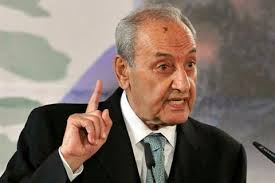 The Progressive Socialist Party on Monday declared its support for legalizing civil marriage in Lebanon.
The Progressive Socialist Party on Monday declared its support for legalizing civil marriage in Lebanon.
“The Progressive Youth Organization regrets that so far there is no national consensus on devising a clear mechanism and measures for holding and registering civil marriages in Lebanon,” the PYO — the PSP’s youth organization — said in a statement.
The organization accordingly called on the relevant authorities to draft a “clear law,” noting that “the country has acknowledged its soundness and rightfulness.”
“Marriage is a basic right and the method in which couples choose to wed is a right guaranteed by the Lebanese constitution,” the organization stressed.
PSP leader Walid Jumblatt had earlier tweeted about the issue.
“Can we voice our opinion without being accused of apostasy? Yes, I’m a supporter of civil marriage and I call for a civil personal status law. Enough with using religion to divide citizens,” Jumblatt said.
MP Faisal al-Sayegh of the PSP , earlier praised Interior Minister Raya al-Hassan’s call for launching a “serious debate” on the topic.
“We call for showing openness towards this proposal and discussing its aspects and conditions objectively, without overbidding and bigotry, seeing as we see in it a gateway for further positive interaction among the various components of the Lebanese society,” al-Sayegh tweeted.
In the first comment by a religious authority over the renewed controversy, Dar al-Fatwa, Lebanon’s highest Sunni Muslim authority, said its stance that “categorically rejects and opposes civil marriage in Lebanon has been well-known for years.”
“It fully contradicts with the rules of Islamic sharia and also violates the stipulations of the Lebanese constitution in terms of the need to respect the personal status law that is applied by the religious courts of the Lebanese,” Dar al-Fatwa’s press office said.
Dar el Fatwa has always been the most outspoken critic against civil marriage
In 2013 Lebanon’s Sunni grand mufti, Sheikh Mohammed Rashid Qabbani declared “war” against the secularization movement. On the official website of the fatwa, Dar al-Fatwa, Qabbani condemned all Muslim politicians who approve a bill on civil marriage , which he describes as a “bacteria” in Lebanese society.
“Any Muslim with legal or executive authority in Lebanon who support legalizing civil marriage is an apostate and outside the religion of Islam,” declares Qabbani and cautioned that, “such officials will not be washed or shrouded, will get no last prayer and will not be buried in a Muslim cemetery.”
In an interview with Euronews, Minister al-Hassan said she is personally in favor of having a “framework for civil marriage” in Lebanon.
“I will talk about this issue and seek to open the door for serious and profound dialogue over the topic with all religious authorities and other officials, supported by Prime Minister Saad Hariri, so that civil marriage can be acknowledged,” al-Hassan said.
Berri rejects the idea
On the other Parliament Speaker Nabih Berri rejected the whole idea on Tuesday.
“The issue of legalizing optional civil marriage in Lebanon is not on the table and no one tolerates it,” he said
“Interior Minister Raya al-Hassan did not say anything wrong. She only said that she would hold consultations over the issue,” Berri added, responding to a question during a meeting with a delegation from the Press Syndicate.
Al-Hassan’s remarks have stirred renewed debate in Lebanon over the thorny issue, after the minister said she would seek “serious and profound dialogue over the topic with all religious authorities and other officials.”
Civil unions still have no clear legal basis in Lebanon, a multi-confessional country of some four million people. Most faiths have their own regulations governing marriage, divorce and inheritance, and mixed Christian-Muslim weddings in Lebanon are discouraged unless one of the spouses converts.
Lebanese authorities recognize civil marriages registered abroad, and it has become common for mixed-faith couples to marry in nearby Cyprus.
Former president Elias Hrawi in 1998 proposed a civil marriage law, which gained approval from the Cabinet only to be halted amid widespread opposition from the country’s religious authorities.

Leave a Reply
You must be logged in to post a comment.